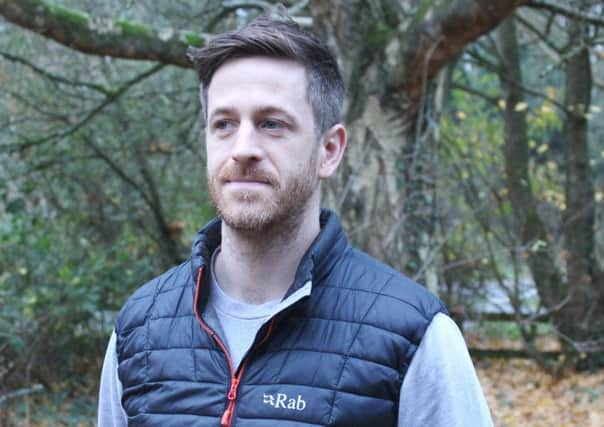'˜Farmers must help the environment'


“This will be the driver for the UK government as it seeks to set out its priorities for farm support over the coming years,” he added.
“The current EU support systems are not working. In most years the single payment represents up to 80% of the farm incomes produced here in Northern Ireland.
Advertisement
Hide AdAdvertisement
Hide Ad“As a result, the current state-of-affairs has only succeeded in stifling farmers’ desire to take risk. Another drawback concerning the current EU support schemes is the fact that 80% of the money goes to 20% of the farmers. This inherently unfair.
“Yes, we need to maintain current farm support budget. The challenge ahead is that of making the money available to the industry in ways that will ensure its sustainability for the future.”
Nature Matters is an umbrella body, which has been established to reflect the combined views of many environmental lobby groups as the UK faces up to a post-Brexit future. These include the Royal Society for the Protection of Birds (RSPB) with which John Martin is conservation team leader.
While recognising that the European Union (EU) has introduced a number of positive measures, where environmental protection is concerned, Mr Martin believes that Brexit will provide the UK government with an opportunity to deliver a new farm policy framework that will deliver for both the environment and farmers’ desire to produce food.
Advertisement
Hide AdAdvertisement
Hide Ad“We need to maintain a sustainable farming sector into the future. In policy terms, this will mean paying farmers to undertake environmental improvement works in ways that will allow them generate profits,” he explained.
“This can be achieved while still allowing farmers to produce food and, at the same time, keeping the UK within all World Trade Organisation criteria.
“It’s all about paying the farmer to deliver public goods.”
Mr Martin defines a ‘public good’ as a product or service which everyone can benefit from. It must also be quantifiable and deliverable at a number of levels.
“Producing food in its own right is not a public good. But protecting our soils and countryside in ways that ensure our potential to produce food sustainably for the future is,” he continued.
Advertisement
Hide AdAdvertisement
Hide Ad“Food security is an issue for the UK at the present time. But it is not simply about the amount of food that we produce as a nation. Food poverty and the growing reliance on food banks by many families are other issues that must be factored into this debate.”
Mr Martin points to a return to more mixed farming practises as part of a model which agriculture should be implementing for the future.
“We have seen a significant reduction in the area of land dedicated to crop production over recent years,” he said.
“These arable areas have their own unique ecosystems, which must be protected. Farmers can be paid for making this a reality.”
Advertisement
Hide AdAdvertisement
Hide AdMr Martin believes that farmers have a key role to play at all levels when it comes to improving the environment and conservation value of all our rural areas.
“The points relating to the improvement of our water quality have been made over many years. But the same principle holds, where biodiversity is concerned,” he said.
The Nature Matters representative also pointed to the opportunity for primary producers to improve the efficiency of their farms, provided they take account of the environmental and conservation priorities set out for the areas in which they live.
He continued: “But here we have a problem. The Department of Agriculture, Environment and Rural Affairs has yet to complete a critically important mapping project, which will profile the specific habitat priorities for each region of Northern Ireland.
Advertisement
Hide AdAdvertisement
Hide Ad“And it’s hard to see this work carried out until such times as we have a functioning Executive working again at Stormont.”
Birds are at the very apex of the ecosystems that feature in every country. And, according to Mr Martin, modern agricultural practices have significantly aided in the decline of many species across most of Northern Ireland.
“If farm management practises are not changed the curlew will be extinct locally within the next 15 years,” he said.
“And it’s not the only species of bird under threat. The Yellow Hammer is another cause for concern.
Advertisement
Hide AdAdvertisement
Hide Ad“Farmers must be encouraged to help reverse these extremely worrying trends. And the only way to do this is by tailoring farm support accordingly.
“Farmers must also receive proper environmental training and all our college courses must be structured to reflect this reality.”
Mr Martin concluded: “The UK can only underpin its future food security by protecting the productive capacity of its land. Farmers will be critical players in making this happen.”